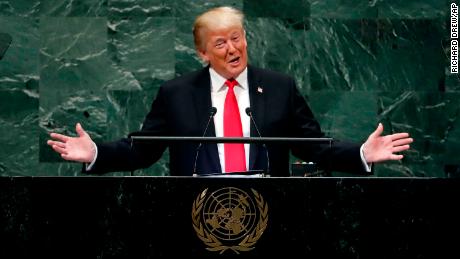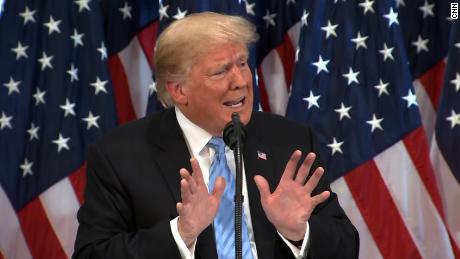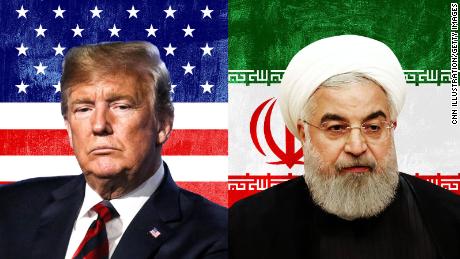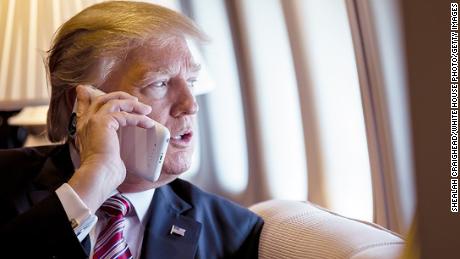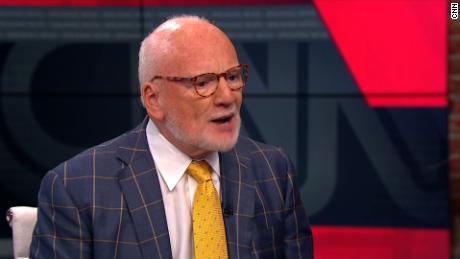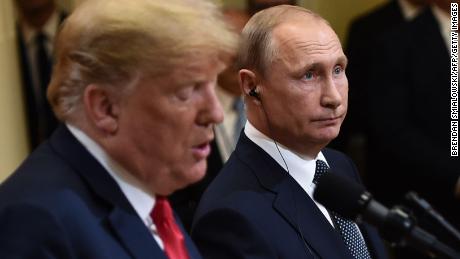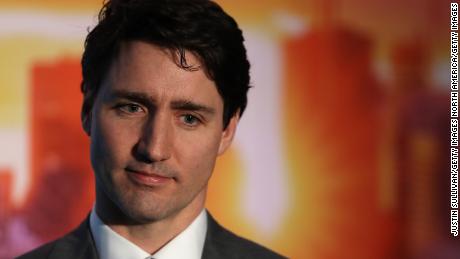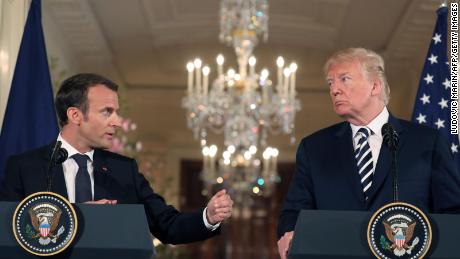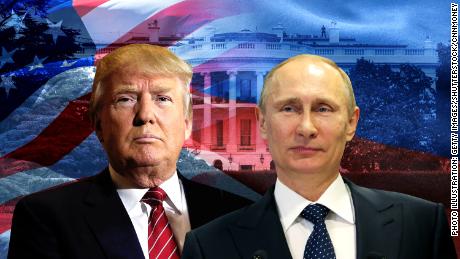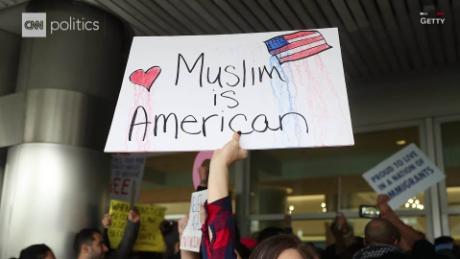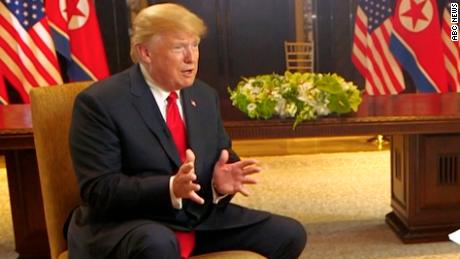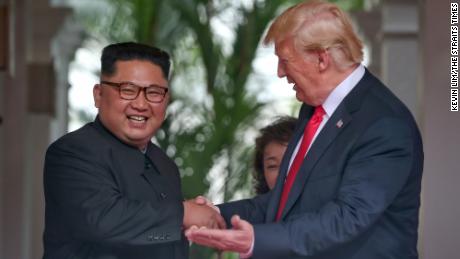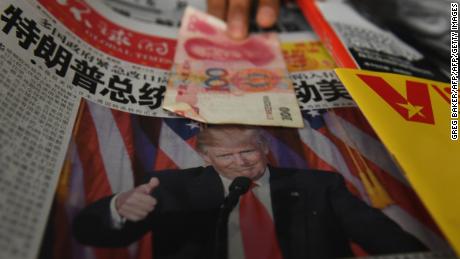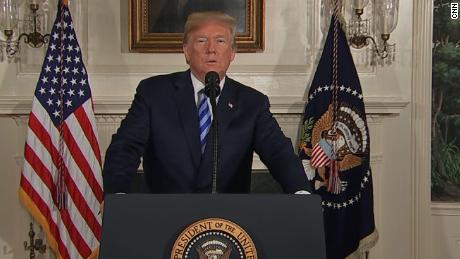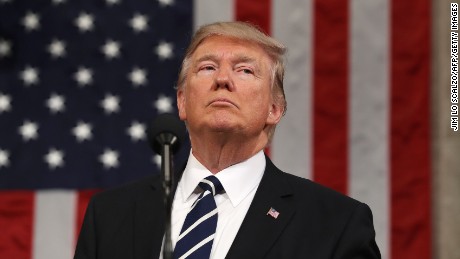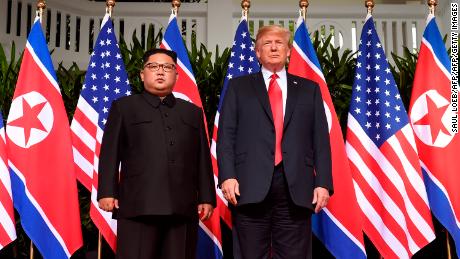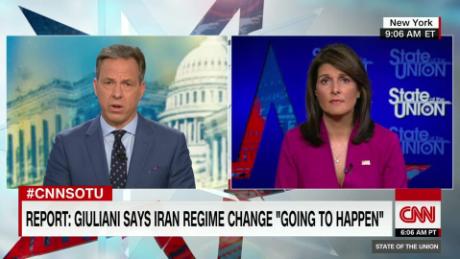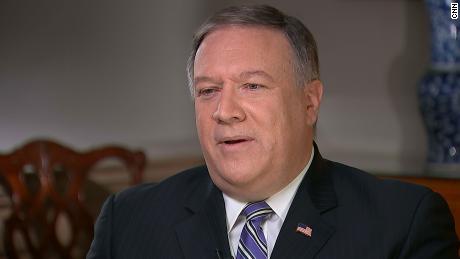Washington (CNN)President Donald Trump's national security adviser John Bolton brought a prop to the UN General Assembly to underscore the Trump administration's primary theme: the US stands on its own.
Bolton waved a copy of the UN Charter, a little booklet meant to symbolize the message that US officials will hammer home during the year's largest gathering of world leaders: that global organizations and national sovereignty are incompatible. "Everybody got a copy?" he asked reporters Monday, before outlining his vision that "infringements on our sovereignty are ... an infringement on the people themselves."
Bolton and other officials were previewing a theme that Trump will strike Tuesday, when he is expected to use his second UN address to emphasize his administration's intent to distance itself from international groups and pacts the US has previously embraced. Even if Trump and his team of senior officials weren't explicitly driving home that message, the growing distance between the US and its traditional allies, particularly in Europe, will be on clear display throughout the week-long event known as the Super Bowl of diplomacy.
It will be reflected in the diverging priorities world leaders emphasize, in the US criticism of the UN and withdrawal from international agreements, and in the message that some leaders will send of their continuing belief in the very concept US officials will push back on: the importance of international cooperation and institutions.
Infringing on the American people
"At a time when multilateralism is needed the most, the UN and the UN system have come under increased pressure," one European Union official told CNN. "The EU will therefore uphold, strengthen and reform the UN and the rules-based global order ... and commit once again to multilateralism."
That pledge stood in contrast to Monday's declaration of independence from US Ambassador to the United Nations Nikki Haley, who told reporters that the United States "is determined to obviously be involved in multilateral organizations where we see it, but not in the way that they're mandated on what the United States does or that infringes on the American people."
Haley, speaking alongside Bolton, listed a few of the international agreements the US has left since Trump took office. "It's been an interesting time knowing that, since the Secretary-General's meeting last year, we have pulled out of the Paris Accord," she said, referring to the international compact on climate change.
"We have pulled out of the Global Compact" on migration, she continued. "We have pulled out of the Iran deal" that eased sanctions on Tehran in exchange for curbs on its nuclear program, Haley said.
Her list was far from complete. Since Trump took office, the US has also cut funding for the UN agency that supports Palestinians, exited from the International Criminal Court and left the UN's Commission on Human Rights over its criticism of Israel's treatment of Palestinians.
Trump has also pulled the US out of the Trans Pacific Partnership, has threatened to leave the World Trade Organization, and has criticized the G7, the North American Free Trade Agreement and the North Atlantic Treaty Organization.
Trump supporters see the steps as necessary to ensure US independence and get international partners to do more -- the President often accuses these organizations of taking advantage of the US.
Trump's critics say this approach undermines US leadership on the global stage, arguing that the President doesn't understand "soft power" or that it is a gift to China and Russia, who prefer a model of great power politics that isn't constrained by international organizations or rules.
Secretary of State Mike Pompeo said Monday the US isn't retreating from global leadership, but reaffirming it.
"Americans expect the United States to assert bold leadership on the world stage that reflects our values," he said, "and under President Trump, we are certainly leading from the front."
Longtime foreign policy analysts say the changes in US policy are coming at a time of unprecedented instability.
Uneasiness and uncertainty
Fred Kempe, the president of the nonpartisan think tank the Atlantic Council, wrote that in his "many years of taking the global pulse around UN week, where more than 120 leaders will gather, I've seldom seen or sensed such uneasiness and uncertainty. I've never known a time when the potential sources of volatility have been so widespread geographically."
He points to trade tensions, geopolitical risk in the form of Mideast conflict, the growth of populism in Europe, excessive debt, Russian attempts to disrupt US leadership and Chinese moves to challenge it.
As the US reduces its engagement in international institutions, other allies made clear going in to this year's General Assembly that they will be stressing the crucial importance of those organizations.
A United Kingdom official said that a thread running through all their General Assembly work will be "the importance of our systems of global cooperation in addressing the challenges we face."
US officials say the relationship with Europe isn't broken, but the new distance is also visible in the priorities being emphasized on either side of the Atlantic.
The US will focus on weapons of mass destruction and nonproliferation, with a strong emphasis on Iran and the need to contain and constrain the Islamic Republic. Other items on the US agenda include North Korea, humanitarian crises, the global challenge of drugs and international efforts to defeat terrorist groups, including the Islamic State, and UN reform.
While there is overlap -- particularly on the issue of chemical weapons and North Korea -- Washington's European allies are raising issues that don't seem to register much on the US priority list this year, chief among them climate change.
Other world leaders will attend the One Planet Summit organized by Michael Bloomberg on the sidelines of the UN to discuss ways to counter climate change. The Canadian and British prime ministers and French president will open a girls' education event, part of an effort to improve the economic, social and political conditions in developing countries.
British Prime Minister Theresa May and her team will draw attention to job creation in Africa, human rights and the large-scale humanitarian tragedy spiraling out of the war in Yemen, where a Saudi Arabian-led coalition is using US weapons to fight an Iran-affiliated rebel group.
And the EU has emphasized as "critically important" a trio of initiatives that the Trump administration abhors or has abandoned: the Paris Climate Agreement, the Iran nuclear deal and the Global Compacts for Refugees and Migrants, political declaration that is directed at improving the way in which the international community responds to large movements of refugees and migrants, as well as to protracted refugee situations.
"The EU," the EU official said, "is a champion of multilateralism."
Correction: This story has been updated to reflect that the booklet that National Security Adviser Bolton waved before reporters was a copy of the UN Charter.


